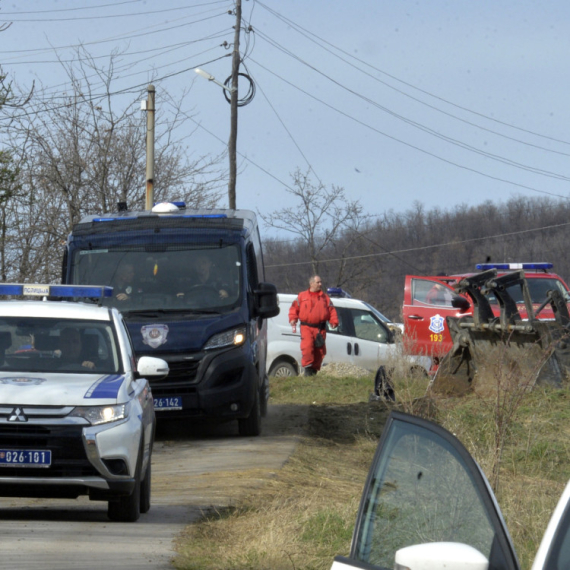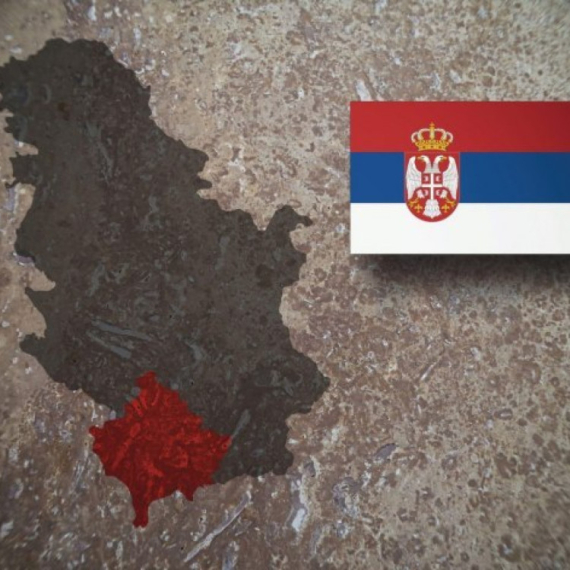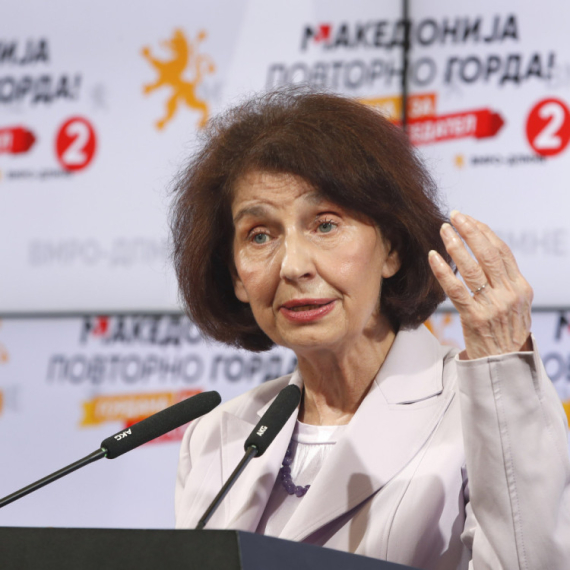Kosovo anniversary goes largely ignored in Belgrade
The fourth anniversary of the unilaterally declared independence of Kosovo has gone almost unnoticed in Belgrade, where state officials by and large ignored it.
Friday, 17.02.2012.
18:59

The fourth anniversary of the unilaterally declared independence of Kosovo has gone almost unnoticed in Belgrade, where state officials by and large ignored it. President Boris Tadic, PM Mirko Cvetkovic, and most other officials did not make any statements related to the subject today. Ethnic Albanians four years ago proclaimed independence of the territory, which Serbia continues to consider its province. Kosovo anniversary goes largely ignored in Belgrade 88 countries in the past four years recognized the UDI, including 22 out of 27 EU member-states. But Russian support for Serbia at the UN meant that Pristina could not apply for membership in the world organization. In Belgrade on Friday, Serbia's chief negotiator in the ongoing Belgrade-Pristina dialogue Borislav Stefanovic, offered his view on the subject, saying that the country's diplomacy "prevented Kosovo from becoming fully independent, because it is not a completely internationally recognized state". Irrelevant of the number of countries that recognize Kosovo, said Stefanovic, "that will not bring a truly high, desired level of independence, that the authorities in Pristina want". "It cannot have the final coating without participation in international institutions and without adequate recognition of Kosovo as an equal and independent state, on par with others. Our diplomacy was engaged to a fair degree, and successfully, in preventing those memberships," said he. The opposition Democratic Party of Serbia (DSS) also reacted today. The UDI was announced while their leader, Vojislav Kostunica, headed the country's government. The party says that Kosovo will not be independent for as long as Serbia refuses to recognize it as such. "That's something that is evident as a confirmed fact every day. If that were not so, Brussels and Washington would not be exerting such pressure on Belgrade to recognize Kosovo. If that were not so, they would have recognized Kosovo, they would have created that state of theirs, do what they like, and everything would be alright. Well, everything is not alright as long as Serbia isn't recognizing Kosovo," DSS official and former Minister for Kosovo Slobodan Samardzic stated. This party also charged that Belgrade was "gradually recognizing Kosovo through negotiations", and that "the last step in this will be accepting Kosovo in regional gatherings and deciding against the holding local elections in Kosovo". The solution the DSS proposes to this situation is - frozen conflict: "Frozen conflict means an exit from the dialogue. It means freezing that free fall into the abyss, stopping it somehow. It can be done if the dialogue is abandoned." But Borislav Stefanovic believes that negotiations - held under EU sponsorship since last March - and what has been achieved in them thus far "can only benefit the local population". Ethnic Albanians celebrating in Pristina (Beta, file) B92
Kosovo anniversary goes largely ignored in Belgrade
88 countries in the past four years recognized the UDI, including 22 out of 27 EU member-states. But Russian support for Serbia at the UN meant that Priština could not apply for membership in the world organization.In Belgrade on Friday, Serbia's chief negotiator in the ongoing Belgrade-Priština dialogue Borislav Stefanović, offered his view on the subject, saying that the country's diplomacy "prevented Kosovo from becoming fully independent, because it is not a completely internationally recognized state".
Irrelevant of the number of countries that recognize Kosovo, said Stefanović, "that will not bring a truly high, desired level of independence, that the authorities in Priština want".
"It cannot have the final coating without participation in international institutions and without adequate recognition of Kosovo as an equal and independent state, on par with others. Our diplomacy was engaged to a fair degree, and successfully, in preventing those memberships," said he.
The opposition Democratic Party of Serbia (DSS) also reacted today. The UDI was announced while their leader, Vojislav Koštunica, headed the country's government.
The party says that Kosovo will not be independent for as long as Serbia refuses to recognize it as such.
"That's something that is evident as a confirmed fact every day. If that were not so, Brussels and Washington would not be exerting such pressure on Belgrade to recognize Kosovo. If that were not so, they would have recognized Kosovo, they would have created that state of theirs, do what they like, and everything would be alright. Well, everything is not alright as long as Serbia isn't recognizing Kosovo," DSS official and former Minister for Kosovo Slobodan Samardžić stated.
This party also charged that Belgrade was "gradually recognizing Kosovo through negotiations", and that "the last step in this will be accepting Kosovo in regional gatherings and deciding against the holding local elections in Kosovo".
The solution the DSS proposes to this situation is - frozen conflict:
"Frozen conflict means an exit from the dialogue. It means freezing that free fall into the abyss, stopping it somehow. It can be done if the dialogue is abandoned."
But Borislav Stefanović believes that negotiations - held under EU sponsorship since last March - and what has been achieved in them thus far "can only benefit the local population".




















Komentari 33
Pogledaj komentare